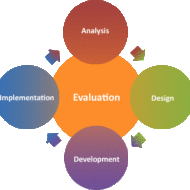Posted by Managementguru in Business Management, Human Resource, Motivation, Organisational behaviour, Principles of Management
on Mar 10th, 2014 | 0 comments

Employee Morale – Role and Effect What is Morale? Morale is a word that conveys different meaning to different people. It might imply the following meanings: 1. Mental Attitude or Mind set from a psychologist’s perspective 2. A feeling of togetherness from an individual’s point of view 3. Group consent in terms of a business environment etc. Morale can be defined as ” an attitude of mind which conditions how well or how badly duties are performed”- W.H.Walley It can also be defined as ” the collective attitudes of workers towards one another, the employer, the management, or their work”-J.C.Denyen Morale is ” the capacity of group of people to pull together persistently and consistently in pursuit of a common purpose”-Dr.Deighton Morale is thus the undercurrent in an organisation that determines the performance levels of the employees as it dictates employees’ enthusiasm, voluntary conformance with regulations and orders and willingness to co-operate with fellow workers to accomplish the enterprise objectives. Poor morale is evident from in-subordination, discouragement and dislike of job, company and associates. Nature of Morale What it is? : Emotional by nature , a state of well- being and an attitude of mind. What it does? : Directly related to quality of work, enthusiasm, motivation, productivity, discipline, co-operation and initiative. Where it resides? : In the minds, attitudes and emotions of employees as individuals and as groups. Whom it affects? : Employees and executives during their interaction and ultimately the customers and the community. What it affects?: Willingness to work and placing the enterprise objective behind self interest. To summarise, the ill effects of Bad Morale would be Reduced productivityIncreased absenteeismAntagonism towards managementToo much of complaints and grievancesIncreased employee turn-overFriction between employeesAlcoholismAccidentsIncreased lethargy In contrary High Morale leads to Willing co-operation towards enterprise objectivesLoyalty to the managementGood behaviour in conformance with the rules and regulationsStrong and coherent groups leading to organisational staminaPrioritising jobs and placing self interest behind organisational objectivesIncreased sense of participationPride in organisation Picture Courtesy: extramadness.com Ways to Improve Employee Morale From the workers’ point of view: Fair compensation and bonusSatisfactory working conditions conforming to safety and securityTreated with dignityEfficient and amiable leadershipScope for expressing their views for improvementAcceptable working hoursEnsuring economic security From the management’s view point Co-operation from the employeesStability of tenureIncreased productivityLow cost per unitLoyalty of the workers Is it possible to measure Employee Morale? Level of productivity: When the morale is low due to different reasons, higher is the chance of absenteeism, accidents and grievances since the employees try to overlook their responsibilities towards the organisation. Therefore it is the responsibility of the management to settle and score issues relating to employees or unions then and there to avoid those issues blowing out of proportion. Morale Surveys These are generally conducted by individual organisations to find out if the employees are satisfied with their job and task and how they feel about it. This is considered to be a fairly important measure to gauge the kind of relationship the employees have with the management. Surveys also indicate whether the channel of communication is open between the superiors and sub-ordinates and serves as an emotional release for the workers to express their real feelings. Types of Morale Surveys: Objective Surveys: Objective type of questions are given to the employees for answering but the flaw is that, the management representative writes the answers and this does not give a chance for the workers to express their feelings. Descriptive Surveys: Here the employees write their answers to queries asked which are more descriptive in nature and reflects the actual feelings of each individual. Projective Surveys: Sometimes psychological tests are conducted to bring out the hidden feelings from tight lipped employees or who fear the management. The management must be aware of the following morale...

Posted by Managementguru in Human Resource, Organisational behaviour, Principles of Management, Training & Development
on Feb 20th, 2014 | 0 comments

Role of Training Some Definitions of Training: According to Flippo, “Training is the act of increasing the knowledge and skills of an employee for doing a particular job”. Training can also be defined as as “any planned or structured activity or approach designed to help an individual or a group of people to learn as to do things differently or to do different things leading to more effective performance and results”. Role of Training: Training is the best way to reach the enterprise goals in minimum time period with maximum efficiency. 1. Training unlike experience can reduce the time required to reach maximum efficiency. 2. Cost of training in much less than the cost of adding experience . 3. The results of experience sometimes can be accidental. 4. The expected results are very much assured in a well conceived and well conducted training program. 5. Its purpose is to achieve a change in the behaviour of those trained and to enable them to do their jobs better. 6. Training makes newly appointed employees fully productive in lesser time. Identifying Training Needs: There are three elements of training – purpose, place and time. Training without a purpose is useless because nothing would be achieved out of it. The purpose must be identified carefully and now there are a large number of techniques available for establishing training needs. Having identified the purpose of a training programme, its place must be determined i.e. whether it has to be on the job or off the job. Place would decide the choice of training method and also affect its effectiveness. The next element is the time. Training must be provided at the right time. A late training would provide obsolete knowledge, which would be useless for the employees. 1. Organizational Analysis: – Comprehensive analysis of organizational structure, objectives, culture, processes of decision – making, future objectives and so on. Analysis begins with an understating of short term & long-term goals of the organization. Is there adequate manpower to fulfill organizational objectives? Whether the work-force possess required skill & knowledge? Are the employees willing to learn? 2. Task analysis: Thorough analysis of various components of jobs and how they are performed has to be done. Task analysis would indicate whether tasks have changed over period of time & whether employees have adequate skill in performs their tasks. 3. Man Analysis: The focus is on individual, his skill, abilities, knowledge & attitude. Key Indicators are Meeting Deadlines Quality of performance Work behavior...




